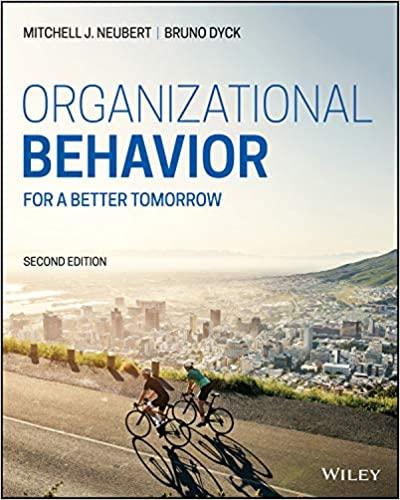When we put on a shirt, we dont think or feel much about those who made it.
Question:
When we put on a shirt, we don’t think or feel much about those who made it. When we read a story about poor conditions in a garment factory on the other side of the world, we may take a few moments to feel pity for the workers. But if we experience those conditions firsthand, it can fundamentally affect our ethics, attitudes, perceptions, and emotions. To get this firsthand experience, researchers sometimes use a method called “participant observation.” The following quotes are from a study by Patty Wagner as she experienced working in a factory in the Philippines. We are creating the samples that will go to the buyers. At first I am stimulated by the challenge to create something new. They are patient with my early mistakes and help me rip out piece after piece. But then it strikes me—they are demanding perfection, but they pay slave wages. If they expect artistry, they should pay for it. Wagner experienced long hours (77 in this example) without the protection of labor laws or unions. What is mandatory is what the management wants or what the market demands, even if it is not “required” or legal. And so, we work 6 to 6, Monday to Friday, 6 to 3 on Saturday and 6 to 2 on Sunday, then back to regular hours Monday. . . . I heard the same story again and again. As soon as workers try to negotiate for fair wages and conditions, the companies shut down. . . . [The factory workers] earn three to four dollars a day for 12 hours work. They leave their homes before sunrise and arrive home after dark.
They barely see their children, or their husbands, who are also working overtime.
This is business, but it also is personal for Wagner and her coworker Julie. I talked with Julie, a woman who . . . had crossed her feet while removing some stitches—taking that opportunity away from her foot pedal to stretch her ankle—and was reprimanded by her supervisor. She was also yelled at when she laughed or spoke to those sitting with her. And she was required to work seven nights a week unless she had a special excuse. . . . After her first week, Julie was exhausted. As she told me her stories, her throat caught with anger and fatigue. She broke down in sobs. I sat beside this woman, holding a pillow to her face to catch the tears, a woman I had never known to weep, and thought, “I want to remember this moment for the rest of my life.” This woman who makes . . . clothes that are supposed to make you feel free and causal—who weeps from the pain of work, who is not even allowed to cross her ankles.
1. Do you think operating such factories is ethical? Explain.
2. Reflect on the forms of affective, normative, and continuance organizational commitment mentioned in the chapter. How might the workers in the factory differ across the forms?
3. What emotions surface when you read this case?
4. Strong emotions can influence behavior, but what prevents your emotional reaction from turning into action?
Step by Step Answer:

Organizational Behavior For A Better Tomorrow
ISBN: 9781119702856
2nd Edition
Authors: Bruno Dyck, Mitchell J. Neubert





